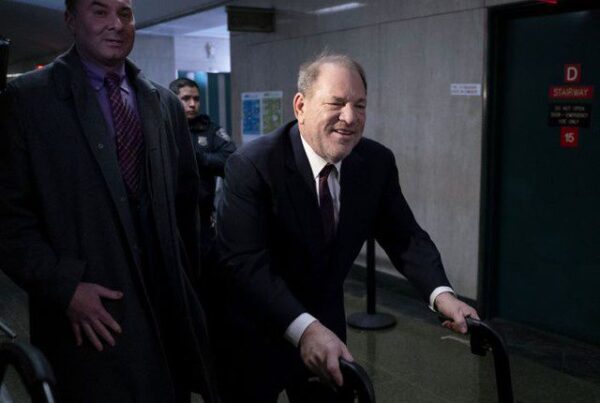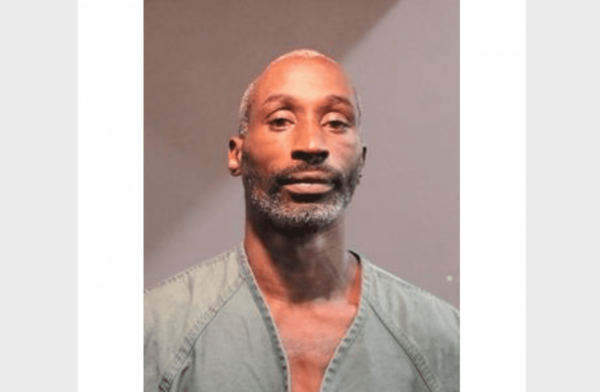By TERRI VERMEULEN KEITH
A judge Monday set sentencing for Feb. 23 for former film producer Harvey Weinstein, who was convicted in December of sexually assaulting a woman in the Los Angeles area.
Superior Court Judge Lisa B. Lench agreed to allow the defense additional time to file a motion for a new trial for Weinstein, who was convicted Dec. 19 of one count each of forcible rape, forcible oral copulation and sexual penetration by a foreign object. All three of those counts related to a woman identified as Jane Doe #1, with the crimes occurring on or about Feb. 18, 2013.
“I expect it will go forward that day,” the judge said.
Jurors acquitted Weinstein, 70, of a felony charge of sexual battery by restraint involving an alleged attack on a masseuse — Jane Doe #3 — in 2010, but deadlocked on a lesser count involving the same woman. The judge noted that the misdemeanor count was not charged, and the prosecution said last month that it didn’t intend to move forward involving that alleged victim.
Prosecutors have not decided whether they will seek a retrial involving charges on which jurors deadlocked involving two other alleged victims — Jane Doe #2 and Jane Doe #4 — the latter of whom has been publicly identified by her attorney as Jennifer Siebel Newsom, the wife of California Gov. Gavin Newsom.
The judge noted that the last day for retrial would be April 24 if the case proceeds on those charges.
The eight-man, four-woman jury that heard the case against Weinstein deliberated for 41 hours over about a 10-day period. The panel was subsequently asked to determine whether there were aggravating factors that would have lengthened his maximum potential prison sentence from 18 years to 24 years, but announced that they could not reach a unanimous verdict following nearly a day of deliberations on that topic.
Weinstein was extradited from New York to stand trial in Los Angeles.
He has remained behind bars following his conviction in New York for raping an aspiring actress and of a criminal sex act against a former production assistant. That state’s highest court has since agreed to hear his appeal in that case.
Weinstein — who Deputy District Attorney Marlene Martinez had earlier called a “titan of the film industry” — engaged in “despicable behavior” and made sure that the alleged victims knew he “could destroy them,” the prosecutor told jurors in her closing argument last month.
Defense attorney Alan Jackson countered that the entirety of the prosecution’s case against Weinstein could be summed up with five words — “take my word for it” — and said the alleged victims lied on the stand about what was actually “consensual” or “transactional” sex with the now-disgraced film producer.
“Did one person come in here and say, ‘I said no to Harvey Weinstein and he screwed my career?’ Was there one? … Not one person said that because it’s a fable … It just isn’t true,” Jackson said.
Weinstein’s attorney contended that two of the alleged attacks involving Jane Doe #1 and Jane Doe #2 “simply never happened” and that they were “fictionalized” accounts of events that never occurred. He said Weinstein’s relationships with the other two alleged victims, including the governor’s wife, were “100% consensual” and amounted to “transactional relationships.”
The defense attorney ended his closing argument with an attack on the testimony of Siebel Newsom, which he called a “theatrical, overly dramatized performance” that was a “pretty good act” that had “no basis in truth.”
“Jane Doe 4 cannot square in her mind that she’s a successful, well-educated, well-bred, refined woman who had consensual sex with Harvey Weinstein in exchange for opportunity and access,” he said of the governor’s wife. “Regret is far from rape. You don’t get to rewrite your own history no matter who you’re married to.”
As she wrapped up her closing argument, the prosecutor told jurors, “It is time for the defendant’s reign of terror to end. … It is time for the kingmaker to be brought to justice.”
Martinez had told jurors earlier in her closing argument that Weinstein used his power to prey on and silence women. She called him a “predator,” and said none of the women making accusations against Weinstein knew each other.
She noted that the women knew they would come to court and face tough questioning from the defense, and that they knew “his attorneys would call them bimbos in open court for having been raped.”
During the trial, jurors also heard from four other women who were allegedly sexually assaulted by Weinstein, but are not listed as charged victims in the case.
Prosecutors have described Weinstein as one of the most powerful people in the film industry at the time of the alleged crimes. Deputy District Attorney Paul Thompson told jurors at the start of the case that Weinstein and his brother, Bob, created Miramax Films, which produced a number of “iconic and award-winning films” including “Pulp Fiction,” “The English Patient,” “Good Will Hunting” and “Shakespeare In Love,” among others. The movies launched the careers of Matt Damon, Ben Affleck, Gwyneth Paltrow and Quentin Tarantino, Deputy District Attorney Paul Thompson said in his opening statement.
Weinstein did not testify in his own defense.







